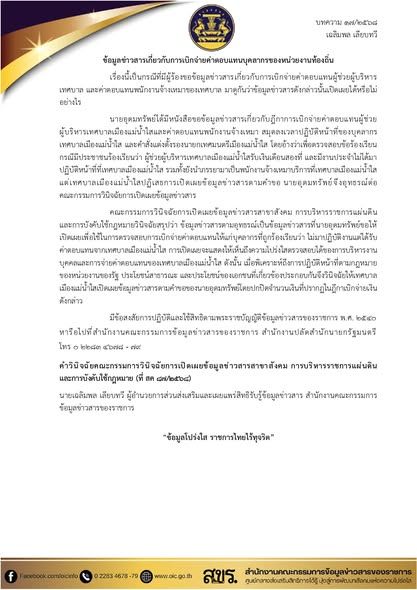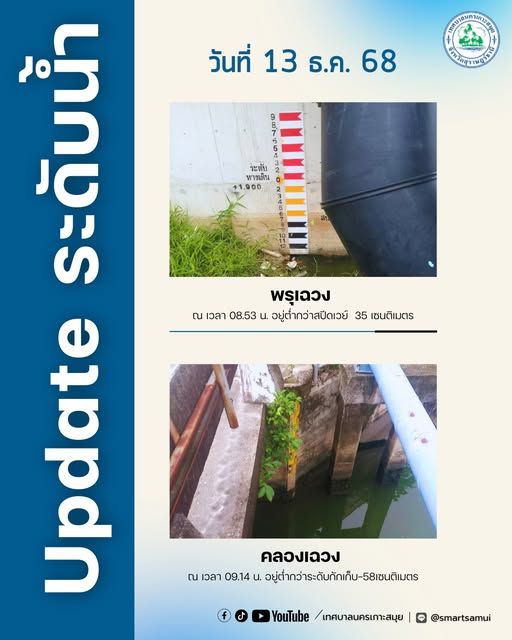The Official Information Commission (OIC) has launched new resources on oic.go.th to simplify access to official government information for everyone. These guides empower you by making details like land titles and personnel pay more transparent and easily discoverable.
OIC #Transparency #GovernmentInformation #KnowYourRights #OpenGovernment #PublicInformation #Thailand #ThaiGovernment #ExploreThailand #Education #Empowerment
The Office of the Official Information Commission has announced new resources to improve transparency and promote the public’s right to access official information. These resources are in line with the Official Information Act B.E. 2540 (1997), which mandates government agencies to proactively disclose information and facilitate its use.
Summary Document for Government Agencies
The Office of the Permanent Secretary to the Prime Minister has developed a comprehensive summary document. This document compiles the Commission’s opinions on key aspects of information disclosure and provides practical guidance for government agencies. The aim is to streamline internal processes and make it easier for the public to obtain the information they need.
Key Topics Covered in the Guidance
The summary document addresses five critical areas:
1. Official Information Held by Savings Cooperatives
Information managed by savings cooperatives, such as membership records and financial statements, is addressed to ensure these details are transparently available. The guidance clarifies which documents should be accessible and the process for public requests.
2. Disbursement of Personnel Compensation by Local Agencies
Documents relating to the allocation and payment of compensation to personnel in local agencies are considered official information. The guidance explains the extent of disclosure required and the exceptions that may apply.
3. S.P.K. 4-01 Land Information
Details regarding S.P.K. 4-01 land, a specific category of agricultural land rights, are included to clarify what aspects can be disclosed. This ensures that individuals and communities have access to vital land information while respecting privacy and legal boundaries.
4. Rights Holders to File an Appeal
The process for individuals whose requests for information are denied is explained in detail. The guidance outlines how rights holders can file appeals, the timeline for responses, and the authorities involved in reviewing these appeals.
5. Disclosure of Land Title Deeds
Information about land title deeds, including the types of documents that are public and the procedures for obtaining them, is clarified. The guidance also addresses privacy considerations and exceptions under the law.
Access to Resources
The summary documents are available for study and download through the official website of the Office of the Official Information Commission. Interested individuals and government officials can visit www.oic.go.th, navigate to the “Knowledge” section, and access the “Articles” area for the latest resources and updates on information disclosure policies.
Frequently Asked Questions
Frequently Asked Questions (FAQ)
How can the public access official government information and what resources are available?
The Official Information Commission (OIC) has launched new resources on their website (www.oic.go.th) to make it easier for everyone to access official government information. These resources include comprehensive summary documents and practical guides that explain how to find information such as land titles, personnel compensation, and more.
What types of information are covered in the new guidance from the OIC?
The guidance addresses five key areas: official information held by savings cooperatives, disbursement of personnel compensation by local agencies, S.P.K. 4-01 land information, the process for rights holders to file an appeal, and the disclosure of land title deeds. Each topic outlines what information is available, how to request it, and any important privacy considerations.
If a request for information is denied, what steps can individuals take to appeal?
The guidance from the OIC provides a clear process for individuals whose information requests are denied. It explains how rights holders can file an appeal, the timeline for responses, and the authorities responsible for reviewing appeals to ensure transparency and uphold the public’s right to information.




